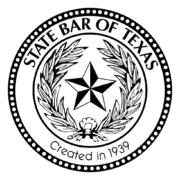Murder Defenses: Insanity
January 09, 2023
Texas Penal Code, Sec. 8.01 provides the framework for the defense of insanity in Texas Criminal courts. It states that “it is an affirmative defense to prosecution that, at the time of the conduct charged, the actor, as a result of severe mental disease or defect, did not know that his conduct was wrong.”
It should be noted that the determining factor for the jury to consider is whether the defendant was aware of the wrongfulness of his act. It is not a defense to prosecution if the Defendant was simply unable to resist his actions because of mental defect or disease, so long as he knew that his act was “wrong”.
Insanity is an affirmative defense, which is a big deal. For most defenses the State is obligated to disprove the defense beyond a reasonable doubt. An affirmative defense shifts the burden of proof to the defense. Texas Penal Code §2.04 states that the existence of an affirmative defense, such as insanity, is not submitted to the jury unless evidence is presented supporting the defense. This evidence must be “competent”. Tex. Code Crim. Pro. Art. 46C.151. The jury is then advised that the Defense has the burden of proving this affirmative defense by a preponderance of evidence.
The competent evidence that the defense is usually required to present will be expert evidence from at least one mental health professional, usually a psychiatrist, who can testify that he has examined and tested the defendant and find him unable to distinguish the difference between right and wrong. It is easy to find a professional who can confidently diagnose mental defect and disease. It is not so easy to find a psychiatrist to testify that their patient is unable to distinguish what is “wrong” by ordinary societal norms.
An example of a legally “insane” defendant would be a mother who drowned her own children because she believed she was required to save them from an imagined demon. In such a case, she might well believe she was not only doing what was best for her children, but also what society would consider to be a just act.
Typically, the defense is not required to share evidence or witnesses with the State and the defense does not need to inform the state of defenses upon which they intend to rely. For the affirmative defense of insanity, however, the defense is not permitted to “ambush” the State. Texas Code of Criminal Procedure Art. 46C.051 requires the defense to provide notice to the trial court of intent to offer evidence of insanity at least 20 days prior to the scheduled date for trial. If notice is given, the court on its own or upon motion by the State, may appoint one or more “disinterested” experts to examine the defendant. Art 46C.101 The court may compel the defendant to submit to examination. Art. 46C.104
In my experience, “disinterested” is usually a problem. In most State courts, the judge allows the State to volunteer an expert to examine the defendant. These usual volunteers know what their role is, and would find even the Batman’s Joker to be thoroughly reasonable and sane. Testimony from these experts typically take on the same theme: Everybody is sane, everybody is bad.
The defense is not off the hook here, either. Psychiatrists don’t work for free. A defendant’s psychiatrist understands what he is in court to do. Sometimes this testimony takes on comical proportions, with the expert going way out on the limb in hypotheticals proposed by the State on cross.
The insanity defense is a tough haul. Juries don’t like to find a defendant not guilty by reason of insanity. They will be instructed that in that event the defendant will be transferred to a psychiatric hospital, but they have the understandable impression that a defendant who goes to a psych facility will eventually get out. They don’t want further violence to be on their conscience. In addition, most jurors don’t understand mental illness well. They have difficulty distinguishing between an organic condition and antisocial disorder. To most jurors, all violent criminals have a mental condition.
When the insanity defense is used, the entire trial becomes a battle of experts, but jurors are human. They will look past experts who disagree and come to their own conclusion if the criminal event shows proof of an individual who has an absolute inability to distinguish right from wrong. A criminal defense attorney who is presenting this defense must supplement experts with testimony from family and friends who can detail the life long fight the defendant has had with his mental illness. The defendant needs to be presented as a person, not a patient if he is to have any chance of being found not guilty by reason of insanity.
























Reviews Matter
★
★
★
★
★
★
★
★
★
★
★
★
★
★
★
★
★
★
★
★
